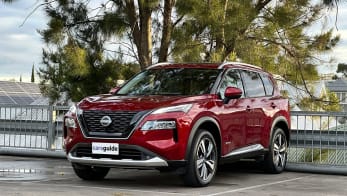According to Mercedes-Benz Australia/Pacific, the Luxury Car Tax (LCT) is expected to be abolished in the next two to three years, with most of its models set to become more affordable.
Speaking with Australian journalists in Stuttgart, Mercedes-Benz Australia/Pacific public relations, product and corporate communications senior manager David McCarthy said the LCT's demise has been in the works for a while.
“I feel confident (by) 2019/2020 there won’t be an LCT,” he said. “And that will have been an 11-year battle.
“LCT will be a casualty in an (European Union) EU free trade agreement. Anyone who tells you otherwise is believing in alternative facts – that’s the reality.”
The LCT currently applies to vehicles with a recommended retail price (RRP) above $65,094 and a claimed fuel consumption figure of more than 7.0 litres per 100 kilometres, or $75,526 for all other cars, with a tax rate of 33 per cent incurred for the amount (excluding GST) above the threshold.
Introduced almost 18 years ago, the LCT was designed to tempt new-car buyers to purchase Australian-made vehicles at the time, such as the Holden Commodore, Ford Falcon and Toyota Camry.
However, despite Australian car manufacturing ending last month following Toyota and Holden's factory closures – as well as Ford’s last year – Mr McCarthy said he is “not worried that it will go the wrong way”, with the largest obstacle ahead likely to be how to apply the expected changes.
“How the government does it, how they phase it in, that’s the challenge, but it will go,” he said.
“It’s currently 33 per cent. My personal view is that you want to implement it over a three-year period, so 33, 22, 11, zero.
“Otherwise, you’re going to have a lot of dislocation in the market and no one is going to shed a tear over OEMs suffering, but the government potentially would lose a lot of revenue.
“The interest is for it to be a smooth, gradual transition. No free trade agreement implements all its parts from day one, it’s staggered, so the economy can adjust and supplies can adjust.
“The challenge with working on the removal of LCT would be a great one.”
Mr McCarthy suggested the government could base its process for removing the LCT on the recent parallel import proposition, while revenue lost from the tariff's extinction would be countered by additional employment and spending.
“They know one of the big factors in the parallel import decision was the ability for that to have a very bad effect on employment, and schools, and training in the network, so they understood that,” he said. “They didn’t believe it originally, but they did their research, they spoke to the industry, they’ll do the same with this.
“And the automotive sector is a big sector, it’s a big employer, it’s a big contributor of tax, whether that’s GST, whether that’s income tax, you don’t want to dislocate that.
“They’re always prepared to trade off, as they have in other free trade agreements, a reduction in revenue in some areas for an increase in economic activity in others.”
As well as the LCT, Mr McCarthy said he believed import duty would also need to be scrapped to maintain fair car pricing, irrespective of where vehicles are built and sourced.
“Ultimately import duty will go as well,” he said.
“I think import duty on cars will also have to go, because otherwise you will be left with a couple of places where cars are sourced from that will still pay import duty because that country is not in the EU or that country might be a Commonwealth country.”
Despite his prediction that LCT changes will be undertaken in the next two to three years, Mr McCarthy said it will happen regardless of a possible government leadership change.
“Both the major parties are committed to an EU free trade agreement in the framework that’s been discussed,” he said.
“There’s always a bit of finessing around some of it, but they are both parties that support low trade barriers and free trade.”





.jpg)
.jpg)

.jpg)
.jpg)



.jpg)






Comments